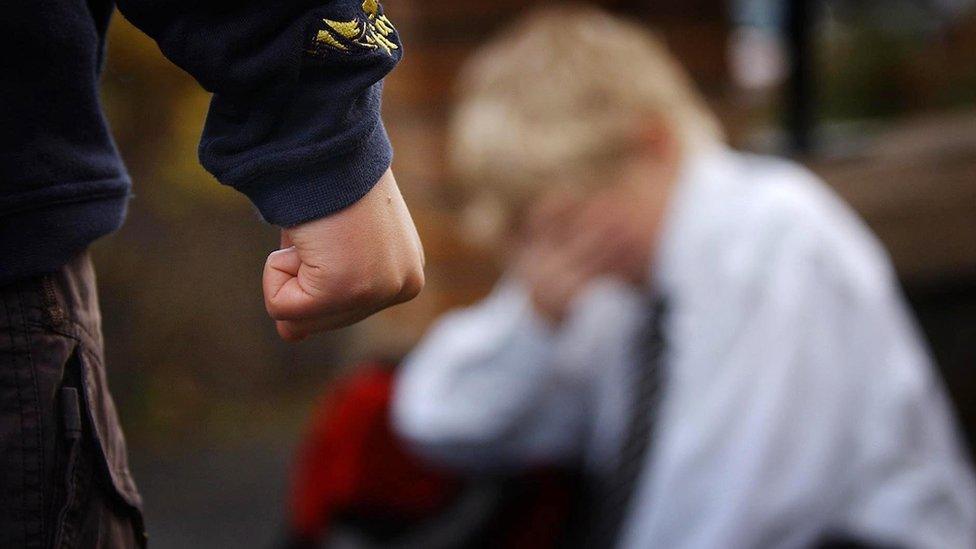NI schools anti-bullying bill introduced at Stormont
- Published

Anti-bullying organisations say more needs to be done to tackle bullying in schools
Education Minister John O'Dowd has introduced a new anti-bullying bill to the Northern Ireland Assembly.
It gives a legal definition of bullying, requires schools to record all incidents and makes boards of governors responsible for policies.
Anti-bullying organisations have welcomed the proposed new laws.
MLAs are to get the chance to debate the bill before Christmas. The minister wants it to become law before the assembly term ends in spring 2016.
Definition
Mr O'Dowd said: "Although bullying is a commonly understood concept, having a clear common definition will help schools, parents and pupils to recognise when bullying is occurring and will support more consistent practice across all of our schools.
"The recording of incidents will help schools to monitor the scale of the problem and how effective they are in addressing incidents.
"Placing a duty on boards of governors will increase their focus on the issue and encourage the use of best practice within each school."
A Department of Education consultation completed earlier this year defined bullying in schools as:
"The repeated and intentional use of physical, verbal, electronic, written or psychological acts," or a combination of these, "by one or more pupils against another pupil or group of pupils with the intention of causing hurt, harm, fear, distress or adversely affecting the rights or needs of that pupil or group of pupils".
This is the basis of the definition of bullying included in the legislation, external.
Imbalance
The bill also proposes that schools will have to keep detailed records of bullying incidents, including why they arose and how they have been dealt with.
A review carried out in 2013 by the Northern Ireland Anti-Bullying Forum (NIABF) highlighted a lack of consistency in how schools recorded and handled bullying incidents.
Dr Noel Purdy, chair of the NIABF, said more work needed to be done to address bullying in schools.
"There has been a very high level of engagement from children and young people on this," he said.

John O'Dowd wants the anti-bullying bill to become law before the end of the assembly term
"Of almost 5,000 responses to the consultation on addressing bullying in schools, over 85% came from school pupils.
Dr Purdy said that while a new definition of bullying would provide a common understanding of what bullying involved, it "doesn't seem to address the issue of the imbalance of power, where a victim finds it hard to defend him or herself".
He added: "We look forward to meeting with the minister in the months ahead to ensure that the agreed definition of bullying is robust."
Guidance
The legislation will apply to bullying between pupils only, and includes incidents of bullying:
in schools
while pupils are travelling to or from school
while under the care of school staff
when pupils are using school equipment
But while the consultation said cyber-bullying was "rapidly growing", it also said there was little legal basis for a school to get involved in allegations of cyber-bullying between pupils if it did not take place in school.
Advice on cyber-bullying will be included in the legislative guidance that will accompany the new laws.